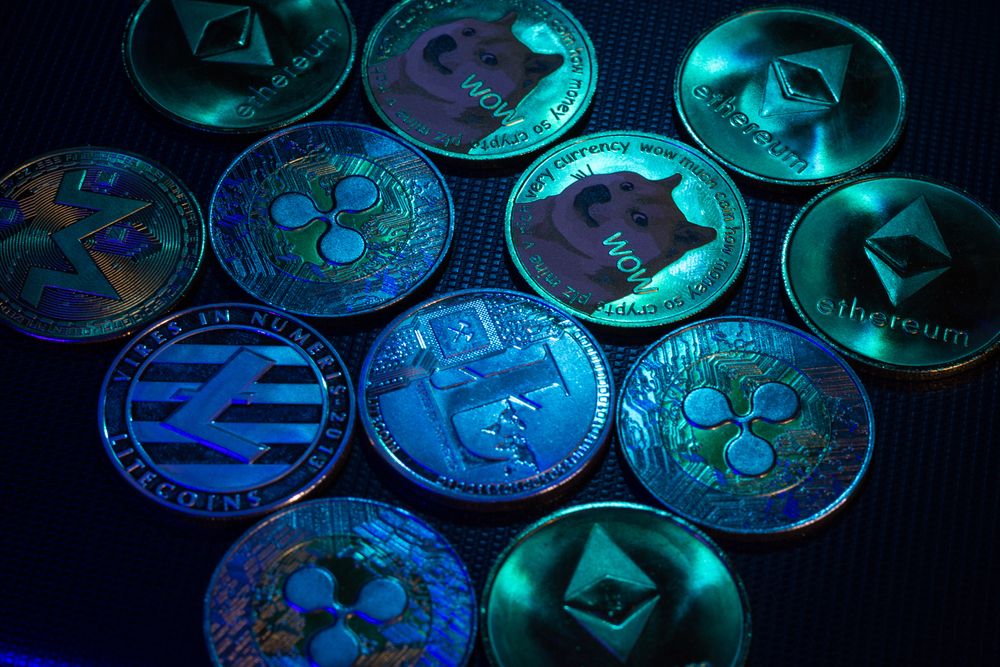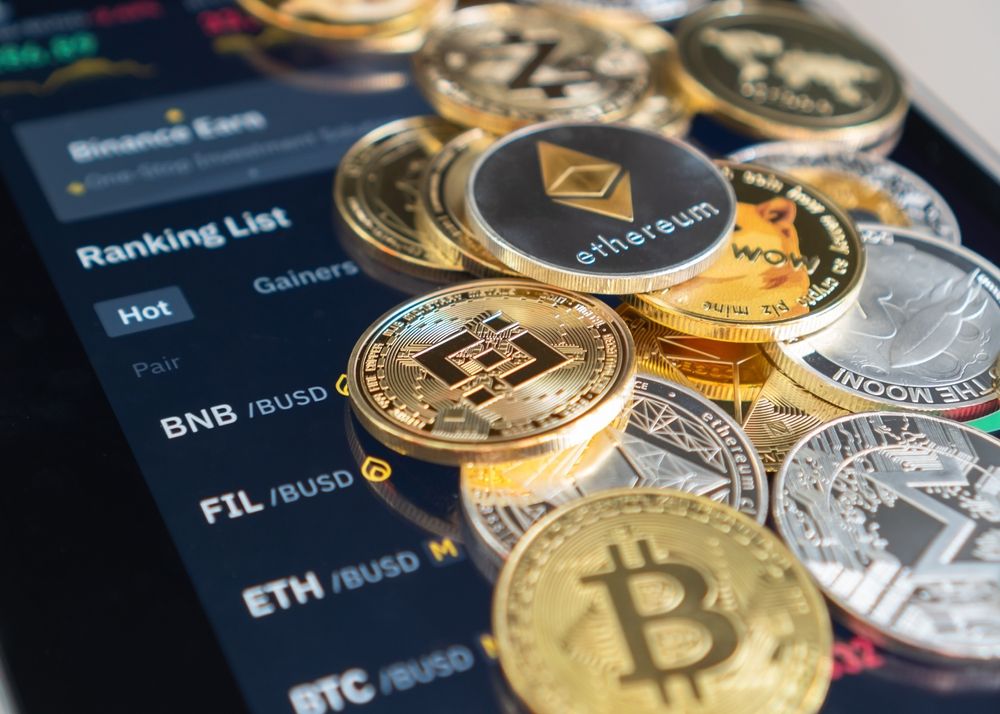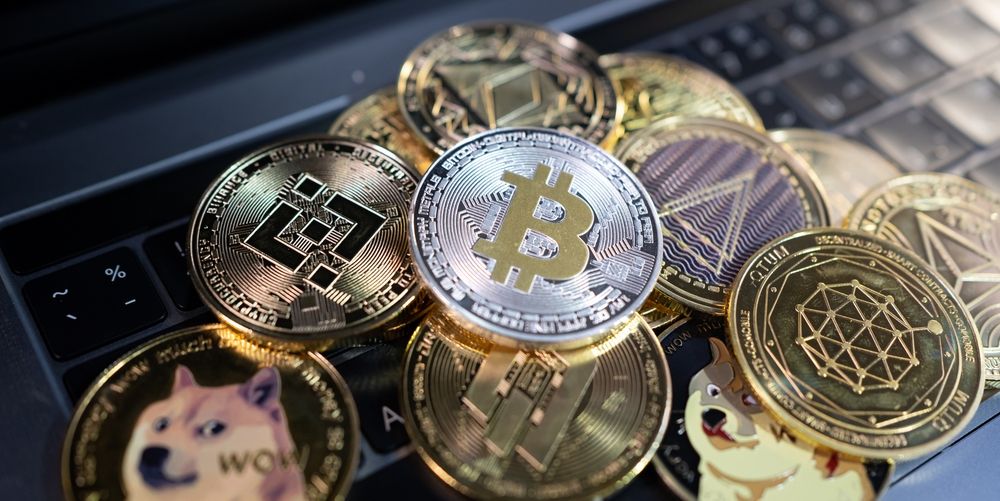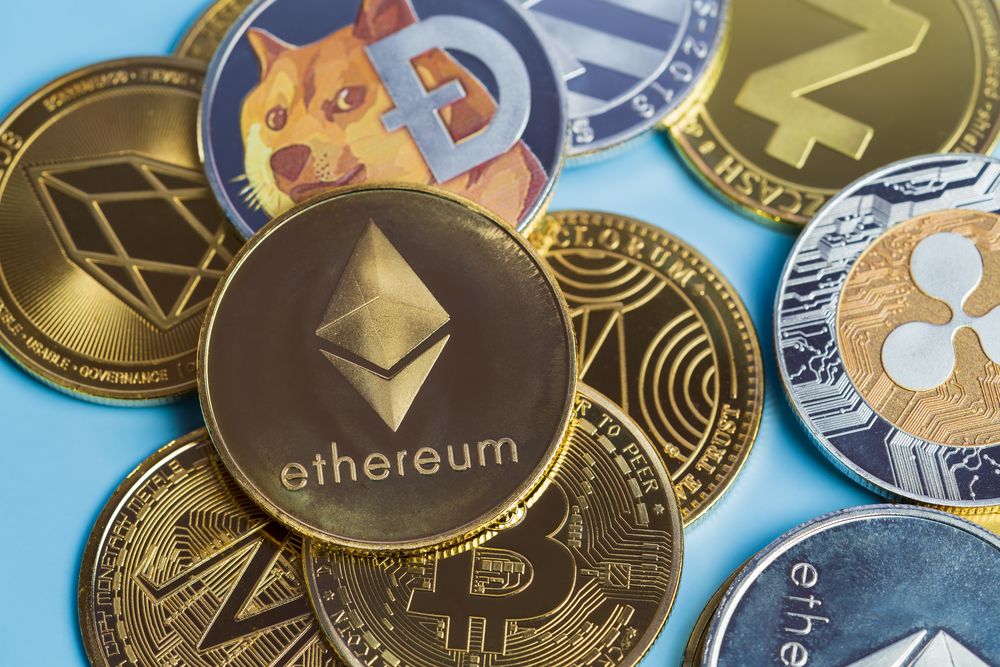When Bitcoin launched in 2009, it introduced a new way to transfer value without relying on banks or traditional intermediaries. As the granddaddy of all cryptocurrencies, Bitcoin remains a cornerstone of the digital currency world, particularly among purists who view it as the only true decentralized asset. While Bitcoin’s influence is undeniable, the core of blockchain innovation lies in the concept of decentralization. So, why should Bitcoin be the only option?
The cryptocurrency space has thrived on continuous innovation, giving rise to thousands of alternative coins — commonly known as altcoins. These digital assets were designed not only to improve upon Bitcoin’s limitations but also to explore new use cases, ranging from smart contracts to decentralized finance (DeFi). Altcoins have redefined the crypto landscape, offering users diverse options that cater to different needs and goals.
But what are altcoins, and how do they fit into the broader crypto ecosystem? This guide will dive into the history of altcoins, their different types, and the reasons behind their growing popularity. We'll also shine a spotlight on wallets you can use to store altcoins and recommend crypto exchanges for your altcoin purchases.
What are Altcoins?
Altcoins, or "alternative coins," refer to any cryptocurrency that's not Bitcoin. It is as simple as that.
While Bitcoin was the first and remains the most famous digital currency, it paved the way for other cryptos to emerge, each offering something different. These alternatives, or "altcoins," were created to either improve on what Bitcoin does or to tackle problems it doesn’t address (we have more on this in the next section)
Altcoins can take many forms. Some are based on Bitcoin’s original code but with tweaks to create something new. A good example is Litecoin, often called the "silver" to Bitcoin’s "gold." It processes transactions faster and uses a different mining system. On the other hand, projects like Ethereum didn’t build off Bitcoin at all — they were designed from the ground up to offer unique features, like smart contracts, which let people set up automatic, trustless transactions.
Bitcoin's influence on altcoins is profound. It not only pioneered the concept of decentralized digital currency but also established a framework that many altcoins build upon. Despite Bitcoin's dominance—accounting for over 40% of the total cryptocurrency market—altcoins have carved out their niches, often addressing specific needs or improving upon Bitcoin's capabilities, such as transaction speed, privacy, and scalability.
General Characteristics of Altcoins
Altcoins exhibit several key characteristics that set them apart from traditional currencies and even Bitcoin:
- Decentralization: Altcoins operate on decentralized networks (as does Bitcoin), enabling peer-to-peer transactions without intermediaries, which enhances security and user autonomy.
- Diverse Consensus Mechanisms: While Bitcoin primarily uses the energy-intensive Proof-of-Work (PoW) algorithm, many altcoins have adopted alternative consensus methods, such as Proof-of-Stake (PoS) and Delegated Proof-of-Stake (DPoS), which are often more energy-efficient and scalable.
- Varied Use Cases: Altcoins are designed for a multitude of applications beyond being mere digital cash. Some serve as utility tokens within specific ecosystems, while others focus on privacy or governance within their networks.
- Transaction Efficiency: Many altcoins aim to provide faster and cheaper transactions compared to Bitcoin, making them more practical for everyday use.
History of Altcoins
Time for a history lesson.
The journey of altcoins began shortly after Bitcoin's introduction in 2009. As the first cryptocurrency, Bitcoin captured the imagination of tech enthusiasts and investors alike, but it also sparked curiosity about what else could be achieved in the realm of digital currencies. The first notable altcoin, Litecoin, was launched in 2011 by Charlie Lee. Designed to be a "lighter" version of Bitcoin, Litecoin aimed to provide faster transaction times and a different hashing algorithm called Scrypt. This laid the groundwork for a wave of alternative coins that would follow, each seeking to improve upon Bitcoin's framework or serve distinct purposes.
 Each Altcoin Aims to Offer Unique Features and Functionalities. Image via Shutterstock
Each Altcoin Aims to Offer Unique Features and Functionalities. Image via ShutterstockAs the cryptocurrency landscape expanded, so did the variety of altcoins. By 2013, the market had witnessed the emergence of several innovative projects, including Ripple and Dogecoin. Ripple focused on facilitating cross-border payments for financial institutions, while Dogecoin, initially created as a joke, gained a dedicated community and became popular for its tipping culture and charitable donations. These developments showcased how altcoins could cater to different audiences and use cases.
The evolution of altcoins accelerated with the rise of Ethereum in 2015. Ethereum introduced the concept of smart contracts, allowing developers to build DApps on its blockchain. This innovation opened the floodgates for thousands of new projects, especially during the Initial Coin Offering (ICO) boom of 2017, when many altcoins were launched to raise funds for various ventures. However, this period also brought challenges, including regulatory scrutiny and the emergence of scams, leading to a more cautious approach in the following years.
Today, the altcoin market is incredibly diverse, with thousands of cryptocurrencies addressing a wide range of needs—from privacy coins like Monero to stablecoins like USDC that aim to maintain value stability.
Why Altcoins Exist?
Altcoins emerged from the desire to innovate and improve upon the foundational principles established by Bitcoin. While Bitcoin was revolutionary as the first decentralized cryptocurrency, it had certain limitations that prompted developers to create alternative coins.
Here are some key reasons why altcoins exist:
Addressing Limitations of Bitcoin
Bitcoin, while groundbreaking, has faced challenges such as scalability, transaction speed, and energy consumption. Altcoins like Ethereum and Litecoin were developed to tackle these issues. For instance, Ethereum introduced smart contracts, enabling complex transactions and decentralized applications (DApps), while Litecoin aimed to provide faster transaction confirmations.
Diverse Use Cases
Altcoins serve a variety of purposes beyond simple transactions. Many are designed for specific applications, such as decentralized finance (DeFi), non-fungible tokens (NFTs), and supply chain management. This specialization allows altcoins to cater to niche markets and provide solutions tailored to particular industries. For example, Chainlink focuses on connecting smart contracts with real-world data, enhancing their functionality.
Experimentation and Innovation
The cryptocurrency space thrives on experimentation. Altcoins provide a platform for developers to test new ideas and technologies. This spirit of innovation has led to the development of unique features, such as privacy enhancements in Monero and governance models in projects like Tezos. Such experimentation encourages a dynamic ecosystem that facilitates growth and adaptation.
Community and Ideological Differences
Many altcoins are born from specific ideologies or visions for the future of finance and technology. For instance, some projects prioritize decentralization and privacy, while others aim to create more user-friendly experiences. This diversity of thought contributes to the rich evolution of the cryptocurrency landscape, allowing users to choose projects that align with their values.
Altcoins vs. Bitcoin
The cryptocurrency landscape is predominantly defined by two categories: Bitcoin and altcoins. While Bitcoin remains the most recognized and widely adopted digital currency, altcoins have proliferated, each offering unique features and functionalities.
Here's how the two stack up:
Aspect | Bitcoin | Altcoins |
| Purpose | Decentralized digital currency | Diverse functionalities (e.g., DApps, privacy) |
| Market Capitalization | Largest, over 40% of total market cap | Smaller, more volatile market caps |
| Consensus Mechanism | Proof-of-Work (PoW) | Various (e.g., Proof-of-Stake, DPoS) |
| Stability | More stable, recognized as "digital gold" | Higher volatility, risk/reward potential |
| Security | Highly secure with extensive computing power | Varies by project, often less secure |
| Unique Features | Limited to currency transactions | Features like smart contracts, privacy, and stable value |
| Community Ideology | Bitcoin maximalism (focus on Bitcoin) | Embraces innovation and diverse projects |
Key Differences Between Bitcoin and Altcoins
Purpose and Functionality: Bitcoin was created primarily as a decentralized digital currency, aiming to facilitate peer-to-peer transactions without intermediaries. In contrast, altcoins often introduce new functionalities. For example, Ethereum enables the creation of smart contracts and DApps, which extend beyond simple currency transactions. This diversity in purpose allows altcoins to cater to various industries and use cases.
Market Capitalization and Stability: Bitcoin holds the largest market share in the cryptocurrency space, often accounting for over 40% of the total market capitalization. This dominance provides Bitcoin with a level of stability that most altcoins lack. Due to their smaller market caps, altcoins can experience significant price volatility, offering both higher risks and potential rewards for investors.
Consensus Mechanisms: Bitcoin relies on the Proof-of-Work (PoW) consensus mechanism, which requires substantial computational power. Many altcoins, however, utilize alternative mechanisms such as Proof-of-Stake (PoS) or Delegated Proof-of-Stake (DPoS), which are often more energy-efficient and scalable. This difference can affect transaction speeds and the overall sustainability of the network.
 Altcoins Were Created to Improve on Bitcoin's Shortcomings. Image via Shutterstock
Altcoins Were Created to Improve on Bitcoin's Shortcomings. Image via ShutterstockWhy Bitcoin Remains Dominant
Despite the innovation and variety that altcoins bring to the table, Bitcoin's first-mover advantage and established reputation contribute to its continued dominance. Bitcoin is often referred to as "digital gold," recognized for its scarcity (limited to 21 million coins) and its role as a store of value. Its widespread acceptance by merchants and financial institutions further solidifies its position in the market.
Moreover, Bitcoin's robust security features and the extensive computing power backing its network make it less susceptible to fraud and attacks compared to many altcoins. This reliability fosters trust among investors, making Bitcoin a go-to choice for those entering the cryptocurrency market.
Unique Features of Altcoins
Many altcoins offer features that Bitcoin does not. For instance, privacy-focused coins like Monero and Zcash provide enhanced anonymity for transactions, appealing to users who prioritize confidentiality. Additionally, stablecoins such as USDC and Tether (USDT) are designed to maintain a stable value, making them ideal for transactions and hedging against volatility.
Bitcoin Maximalism vs. the Altcoin Community
The relationship between Bitcoin and altcoins often leads to contrasting ideologies within the cryptocurrency community. Bitcoin maximalists believe that Bitcoin is the only cryptocurrency that will ultimately succeed, viewing altcoins as distractions or inferior alternatives. On the other hand, the altcoin community embraces innovation and experimentation, advocating for the potential of diverse projects to solve real-world problems.
Types of Altcoins
Altcoins, or alternative coins to Bitcoin, come in various forms, each serving unique purposes within the cryptocurrency ecosystem. Here, we explore four primary types of altcoins: payment tokens, utility tokens, security tokens, and stablecoins.
Payment Tokens
Payment tokens are cryptocurrencies designed specifically for facilitating transactions and exchanging value between parties. They function similarly to traditional currencies but operate on decentralized networks, allowing users to send and receive payments without intermediaries.
Use Cases: Payment tokens are primarily used for purchasing goods and services, both online and in physical stores. They can also serve as a medium for remittances and peer-to-peer transfers, enabling users to transact globally without the need for banks or payment processors.
Examples:
Bitcoin (BTC): The OG crypto is widely accepted for various transactions.
Litecoin (LTC): Known for faster transaction times compared to Bitcoin, Litecoin is frequently used for online payments.
Ripple (XRP): Designed for international money transfers, Ripple aims to provide a fast and cost-effective solution for banks and financial institutions.
 While Altcoins Have Made Strides, Bitcoin Remains the OG. Image via Shutterstock
While Altcoins Have Made Strides, Bitcoin Remains the OG. Image via ShutterstockUtility Tokens
Utility tokens are digital assets that provide users with access to a product or service within a specific blockchain ecosystem. They are not designed as investments but rather as tools for interacting with DApps.
Use Cases: Utility tokens often serve as a means of payment for transaction fees, access to services, or participation in governance within a platform. For example, users may need to hold a specific utility token to access features or participate in a network's decision-making processes.
Examples:
Ethereum (ETH): As the native token of the Ethereum network, ETH is used to pay for transaction fees and computational services on the platform.
Binance Coin (BNB): Initially launched for trading fee discounts on the Binance exchange, BNB has evolved to support various applications within the Binance ecosystem.
Chainlink (LINK): This token is used to pay for services within the Chainlink decentralized oracle network, which connects smart contracts to real-world data.
Security Tokens
Security tokens represent ownership or a stake in an underlying asset, such as real estate, equity, or other financial instruments. Unlike utility tokens, security tokens are subject to regulatory oversight and must comply with securities laws.
Significance: The tokenization of assets through security tokens allows for fractional ownership, making it easier for investors to access high-value assets. This innovation can enhance liquidity in traditionally illiquid markets.
Differences: Security tokens differ from other cryptocurrencies in that they are regulated and must adhere to legal frameworks. This regulatory compliance provides investors with certain protections but may limit the flexibility and accessibility of these tokens.
Stablecoins
Stablecoins are cryptocurrencies designed to maintain a stable value by pegging their price to a reserve of assets, such as fiat currencies or commodities. This stability makes them less volatile than traditional cryptocurrencies, making them attractive for various use cases.
Stablecoins can be backed by reserves of fiat currency (like the US dollar) or use algorithmic mechanisms to regulate supply and demand. For instance, if the price of a stablecoin rises above its peg, the issuer can increase supply to bring the price back down.
Popular Stablecoins:
Tether (USDT): One of the first and most widely used stablecoins, USDT is pegged to the US dollar and is commonly used in trading and transactions.
USD Coin (USDC): A fully-backed stablecoin, USDC is also pegged to the US dollar and is known for its transparency and regulatory compliance.
DAI coin: An algorithmic stablecoin created by MakerDAO, Dai is pegged to the US dollar and is maintained through a system of smart contracts.
Use Cases: Stablecoins are frequently used as a medium of exchange, a store of value, and a means to hedge against the volatility of other cryptocurrencies. They are also popular for lending and borrowing within DeFi platforms.
Popular Altcoins
The cryptocurrency market is home to a diverse array of altcoins, each offering unique features and use cases. Here, we explore six of the most popular altcoins.
 Ethereum is the Second-Largest Crypto After Bitcoin. Image via Shutterstock
Ethereum is the Second-Largest Crypto After Bitcoin. Image via ShutterstockEthereum (ETH)
Ethereum is the second-largest cryptocurrency by market capitalization after Bitcoin. It was launched in 2015 and has since become a leading platform for DApps and smart contracts. Ethereum's native token, ETH, is used to pay for transaction fees and computational services on the network. The platform's popularity has been driven by its ability to support a wide range of applications, from DeFi protocols to non-fungible tokens (NFTs).
You can read much more in our full Ethereum review. Also, be sure to check out our top picks for the best Ethereum DApps and best Ethereum wallets.
Binance Coin (BNB)
Binance Coin is the native token of the Binance ecosystem, which includes the Binance cryptocurrency exchange and various other services. Initially launched in 2017, BNB was primarily used to pay for trading fees on the Binance exchange, offering discounts to users who paid with the token. Over time, BNB has evolved into a multi-functional cryptocurrency that can be used for payments, trading, and even as collateral in DeFi applications. The Binance ecosystem has grown rapidly, with the Binance Chain and Binance Smart Chain blockchains supporting a wide range of DApps and services.
If you want guidance on where to store your BNB, check out our best Binance Coin wallets article.
Solana (SOL)
Solana is a high-performance blockchain platform known for its scalability, speed, and low transaction costs. Launched in 2020, Solana aims to address the limitations of existing blockchains by introducing a unique consensus mechanism called Proof of History (PoH). This mechanism provides a historical record of events that occurred in the network, allowing validators to quickly agree on the state of the blockchain. Solana's architecture is designed to support DApps and DeFi projects, offering developers a robust ecosystem for innovation. SOL, the native cryptocurrency of the Solana network, serves various functions, including transaction fees, staking, and governance participation.
We have a number of Solana-focused articles: Top Solana projects, best Solana wallets and Solana use cases.
Cardano (ADA)
Cardano focuses on security, scalability, and sustainability. It was founded by Charles Hoskinson, one of the co-founders of Ethereum. Cardano's development is guided by a research-based approach, with each upgrade being peer-reviewed and tested before implementation. The platform uses a proof-of-stake consensus mechanism called Ouroboros, which is designed to be more energy-efficient and secure than proof-of-work. ADA, Cardano's native token, is used for transaction fees, staking, and governance within the network. Cardano aims to provide a platform for building DApps, particularly in the areas of finance, identity management and supply chain tracking.
You can check out our detailed review of Cardano, get the lowdown on its top projects and learn about the best Cardano wallets to store your ADA.
Polkadot (DOT)
Polkadot focuses on interoperability, allowing different blockchains to communicate and transfer data with each other. It was founded by Gavin Wood, another co-founder of Ethereum. Polkadot uses a unique architecture that includes a relay chain and multiple parachains, which are specialized blockchains that can be customized for specific use cases. The DOT token is used for staking, governance, and paying transaction fees within the Polkadot network. The platform aims to create a decentralized web by enabling seamless integration between different blockchain protocols.
Check out more in our full Polkadot review. It also has some amazing projects, and if you're looking to store some DOT, our review on the very affordable SafePal S1 can be a good starting point to understand more about hardware wallets.
Dogecoin (DOGE)
Dogecoin is a meme-inspired cryptocurrency that was created in 2013 as a joke (we have it adequately covered for you to check out). Despite its lighthearted origins, Dogecoin has gained a dedicated community and has even been endorsed by influential figures like Elon Musk. DOGE is primarily used for tipping content creators, making small payments, and participating in the Dogecoin community. While Dogecoin has a large supply and a relatively simple blockchain, its popularity has been driven by its fun and inclusive branding, as well as the enthusiasm of its supporters.
There are many interesting Dogecoin spinoffs too, by the way, and you can check out our analysis of where you can store your DOGE. Also, you can take a journey through the evolution of memecoins, tracing their trajectory from the emergence of altcoins to the birth of meme-inspired tokens.
Where to Buy Altcoins?
When it comes to purchasing altcoins, several reputable cryptocurrency exchanges offer a wide range of options.
 You Can Buy Altcoins Through Any Major Crypto Exchange. Image via Shutterstock
You Can Buy Altcoins Through Any Major Crypto Exchange. Image via ShutterstockHere are some of the best platforms to consider:
Binance
Binance is one of the largest and most popular cryptocurrency exchanges globally, known for its extensive selection of altcoins and competitive trading fees. It supports hundreds of cryptocurrencies, making it an ideal choice for those looking to invest in various altcoins. Binance also offers advanced trading features, including futures and margin trading, catering to both beginners and experienced traders. For more details, check out our Binance review.
👉 Buy Altcoins With Binance And Get Exclusive 20% Trading Fee Discount For Life
KuCoin
KuCoin is another well-regarded exchange that provides access to a vast array of altcoins. Launched in 2017, it has quickly gained popularity due to its user-friendly interface and low trading fees. KuCoin also features unique offerings like staking and lending, allowing users to earn passive income on their holdings. For an in-depth look at its features, visit our KuCoin review.
👉 Buy Altcoins With KuCoin And Get Trading Fee Discount of Up To 60%
BloFin
BloFin is a rising exchange that focuses on providing a secure and efficient trading environment for cryptocurrency enthusiasts. It offers a variety of altcoins and emphasizes user security with advanced features. BloFin is particularly appealing to users looking for a straightforward trading experience. You can read more about it in our BloFin review.
👉 Buy Altcoins With BloFin And Get Up To $100k Bonus + 70% Exclusive Fee Discount
Kraken
Kraken is one of the oldest cryptocurrency exchanges, known for its security and regulatory compliance. It offers a solid selection of altcoins and is favored by traders who prioritize safety. We also have a dedicated review for Kraken, as it remains a reliable choice for purchasing altcoins.
We also offer a comprehensive overview of the best crypto exchanges to help you navigate your way with crypto.
Where to Store Altcoins?
Storing altcoins securely is crucial for any cryptocurrency investor. Various wallet options are available, each with its advantages and disadvantages. Here’s a breakdown of the primary types of wallets you can use to store your altcoins:
Hardware Wallets
Hardware wallets are physical devices designed to securely store your private keys offline, making them one of the safest options for holding cryptocurrencies. They are resistant to malware and hacking attempts, as they do not connect to the internet. Popular hardware wallets include:
- Ledger: Supports over 5,000 cryptocurrencies and offers robust security features.
- Trezor: Known for its security and user-friendly interface, supporting a wide range of cryptocurrencies.
👉 Buy Ledger Wallets
👉 Buy Trezor Wallets
These wallets are ideal for long-term storage and larger amounts of cryptocurrency.
Desktop Wallets
Desktop wallets are software applications installed on your computer. They provide a good balance between security and convenience, as they allow you to manage your altcoins directly from your desktop. Some popular desktop wallets include:
- Exodus: Offers a user-friendly interface and supports multiple cryptocurrencies.
- Electrum: Best known for Bitcoin, but some versions support altcoins as well.
While desktop wallets are relatively secure, they are still vulnerable to malware if your computer is compromised.
Mobile Wallets
Mobile wallets are applications designed for smartphones, providing easy access to your altcoins on the go. They are convenient for daily transactions but may be less secure than hardware or desktop wallets. Notable mobile wallets include:
- Trust Wallet: A popular choice for Binance users, supporting numerous cryptocurrencies.
- Coinomi: Known for its extensive support for multiple altcoins and user-friendly interface.
Mobile wallets are great for everyday use, but it’s essential to enable security features like two-factor authentication.
What Are Altcoins: Closing Thoughts
Altcoins may have started as alternatives to Bitcoin, but they’ve grown into a vast ecosystem of cryptocurrencies, each serving unique purposes and offering different advantages.
From payment tokens like Litecoin to utility tokens such as Ethereum, and even stablecoins like USDT, altcoins provide a variety of tools and opportunities for those navigating the crypto landscape. Understanding their distinct characteristics, use cases, and how they compare to Bitcoin is essential for making informed decisions in the ever-evolving world of digital assets.
Whether you're looking to diversify your portfolio, explore decentralized applications, or find faster and cheaper ways to transact, altcoins can offer solutions tailored to your needs. By staying informed about the different types of altcoins and their specific roles, you'll be better positioned to take advantage of the opportunities they present.





